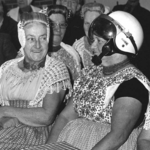Pillarization, Multiculturalism and Cultural Freezing. Dutch Migration History and the Enforcement of Essentialist Ideas
DOI:
https://doi.org/10.18352/bmgn-lchr.7124Keywords:
migration, pillarizationAbstract
During the 1970s, the Netherlands introduced a set of multi-cultural policies which, through government subsidies, subsidised and promoted the otherness of migrants for several decades. Other countries also embraced multiculturalism. In the Netherlands, however, this policy represented a continuation of an older tradition of pillarization. Multiculturalism was not pillarization in new clothes, however, although there was a continuity of the underlying ideas, as this article will show. This led to a great deal of enthusiasm for multiculturalism, and subsequently to great disappointment, without it ever becoming clear what exactly the aim of the policy was and how its success or failure could be measured. The central thesis of this article is that the successive development of pillarization and multiculturalism in the Netherlands has led to a reinforcement of essentialist ideas concerning migrants and their descendants, as well as a freezing of ideas on ‘the’ Dutch culture. This double freezing then made adaptation difficult or impossible.
This article is part of the special issue 'The International Relevance of Dutch History'.
Downloads

Downloads
Published
Issue
Section
License
Authors who publish with this journal agree to the following terms:
a) Authors retain copyright and grant the journal right of first publication with the work simultaneously licensed under a Creative Commons Attribution 4.0 International (CC BY 4.0) that allows others to share the work with an acknowledgement of the work's authorship and initial publication in this journal.
b) Authors are able to enter into separate, additional contractual arrangements for the non-exclusive distribution of the journal's published version of the work (e.g., post it to an institutional repository or publish it in a book), with an acknowledgement of its initial publication in this journal.
c) Authors are permitted to post their work online (e.g., in institutional repositories or on their website) prior to and during the submission process.
Authors are explicitly encouraged to deposit their published article in their institutional repository.








